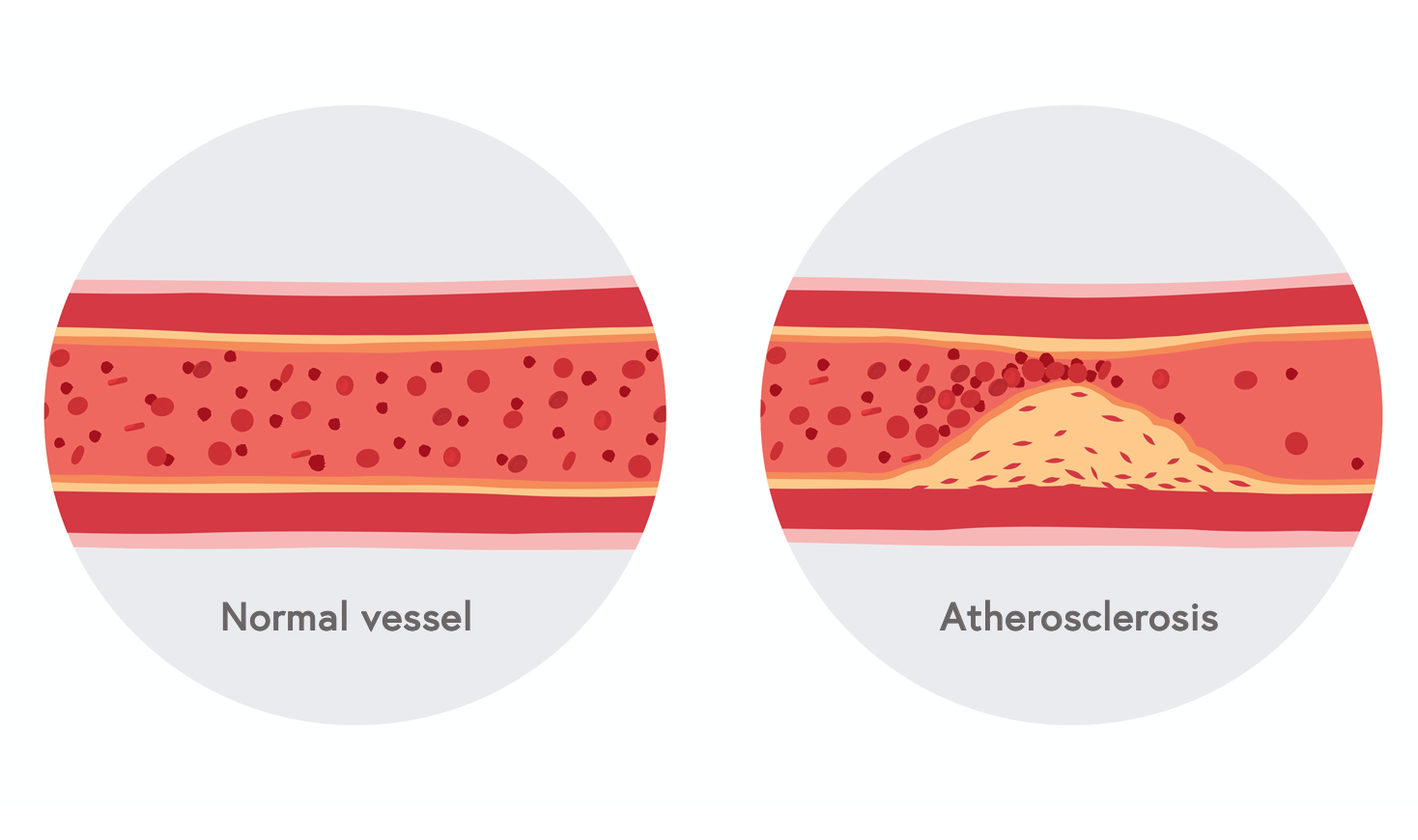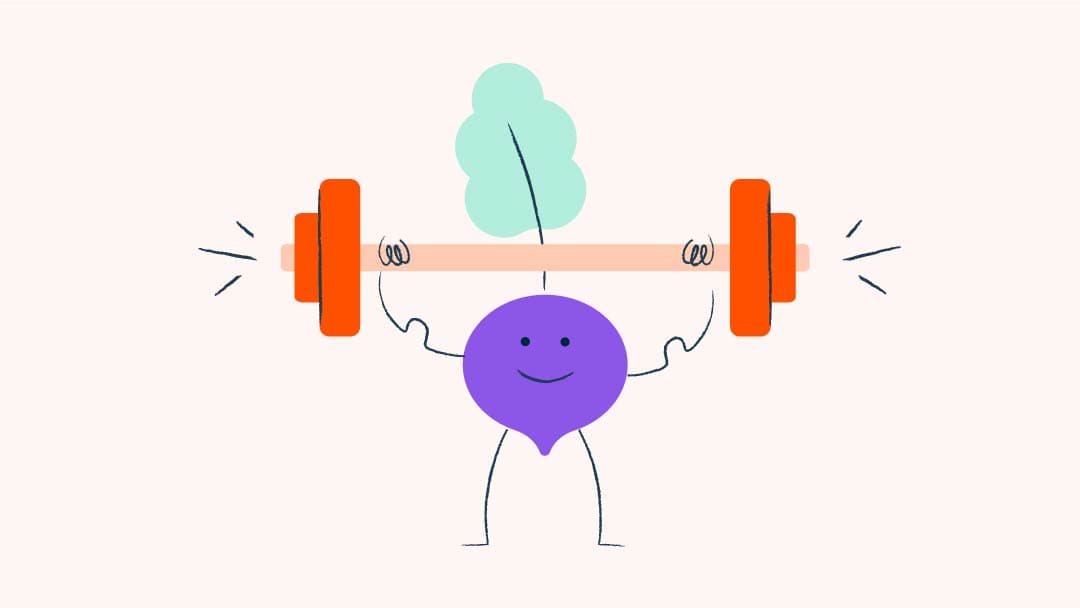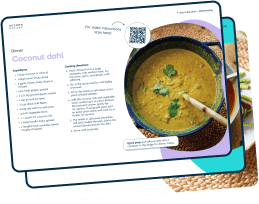The recent Netflix film The Game Changers has quickly gained a lot of attention. Produced by a collection of celebrity names, including Arnold Schwarzenegger and James Cameron, its release has created a media buzz.
The film is predominantly focused on proving that a vegan diet is the best diet to enhance athletic ability and live a healthy life.
‘The Game Changers’ raised some valid points. We agree that:
However, when you take a closer look at the evidence referenced in this film, some cracks start to show that reduce the validity of their conclusion. Some issues with the film include:
To be clear, we are not stating that a vegan diet is worse than a meat-based diet. If balanced properly, a vegan diet can provide you with all of the nutrients you need, just perhaps with slightly more effort.
What we are saying is that this film claims they are using science to back up their points, however, the science is weak to non-existent for the most part. We are also saying that science suggests that if you have a balanced diet, including a variety of vegetables, protein, healthy fats, and complex carbohydrates, eating fresh (rather than processed/junk food) animal products is not detrimental to your health.
Medication-assisted weight loss with a future focus
Start with Wegovy or Mounjaro, transition to habit-based health with our support


Protein (Approx 14 mins in)
A valid point is made here that non-meat eaters can get more than enough protein from plant sources. This is true. However, what is very misleading here is the discussion around amino acids and claims that all plant sources of protein are sufficient on their own.
Amino acids are the building blocks of proteins. Each protein source is made up of a variety of amino acids that form a chain. There are roughly 20 amino acids, 8 of which are essential for adult humans and required from the diet. These 8 are:
- Leucine
- Isoleucine
- Valine
- Threonine
- Methionine
- Phenylalanine
- Tryptophan
- Lysine.
‘The Game Changers’ claim that every single plant protein source contains all of the essential amino acids. This strictly speaking is true, however, it is incredibly misleading for 2 reasons.
Firstly, the food matrix is very complex and it makes no sense to note that certain foods contain certain compounds but disregard the amounts. In the same way that most foods contain protein, fats, and carbohydrates, and it is the ratio of these that determines the food group they fall in. For example, an avocado, although a symbol of healthy fats, also includes on average 9g of carbohydrates.
Secondly, the part they brush over very quickly in the film was the key sentence ‘in varying proportions’. Research demonstrates that plant protein sources hugely vary in their content of essential amino acids.
For example, chickpeas contain many of the essential amino acids but are lacking in lysine and methionine. Combining chickpeas with brown rice, or other grains, which contain larger amounts of these amino acids would form a complete protein.
It is not necessary to eat them in the same meal, but across a day or week, it is important for vegan individuals to ensure there is a lot of variety in plant-based protein sources. This point is not addressed in the film.
Cloudy blood (Approx 14 mins in)
Dr Robert Vogel conducts the burrito experiment with 3 American footballer athletes and feeds them beef, chicken, and vegan (bean) burritos. Dr Vogel discusses the lining of cells on the inside of our blood vessels, called the endothelium, and the opening and restricting of blood vessels.

After each athlete consumes the different burritos, blood samples are taken and centrifuged (separating the red blood cells from plasma). They show that after eating animal products, the athletes’ blood plasma was slightly more cloudy and conclude that clear blood plasma is a sign of good endothelium function.
However, at no point does Dr Vogel explain if/why cloudy plasma has a negative impact on endothelium function or blood pressure. A study used to back-up this evidence was a small pilot study, with 11 participants, suggesting that avocado improves endothelium function.
Pilot studies are small-scale and serve the purpose of helping to plan for the larger, better-controlled studies. That means they are not high-quality sources of evidence. On top of this, the study was funded by an American avocado brand.
Heart health (Approx 34 mins in)
Dr Kim Williams starts by discussing how eating animal products results in atherosclerosis. Atherosclerosis is just a scientific word to describe the build-up of plaques in the inner wall of arteries.

However, before giving any explanation as to how animal products result in atherosclerosis, the film jumps to the idea that inflammation, caused by eating animal products, ‘corrodes our cardiovascular system’.
Animal products
Let’s start with animal products. The traditional view is that animal products contain a lot of saturated fat, which increases cholesterol in our blood, leading to our arteries getting clogged up.
This theory is based upon observational evidence suggesting that saturated fat in the diet increases our chance of heart disease. These studies observe people over long periods of time and try to understand how different lifestyle factors affect things like heart disease.
Interestingly, different observational evidence shows no relationship between eating saturated fat and the occurrence of heart disease.
These studies can’t tell us much about causation, as so many different factors can affect the results, but we can’t make a conclusion from the results of one if another totally contradicts it. Only when many, large-scale observational studies undoubtedly point to the same conclusion can we start to consider causation.
On top of this, if we look at countrywide data, the countries that consume the most saturated fat (e.g. France and Switzerland) have the lowest rate of deaths from heart disease, whereas countries that consume little saturated fat (e.g. Georgia and Russia) have the highest rates.
So overall, stating that animal products lead to atherosclerosis with no explanation seems to be based on the traditional view, that grew from observational evidence and is challenged by different observational findings.
Inflammation
The film quickly skips to blaming chronic inflammation, as a result of eating animal products, for heart disease. Inflammation got the blame because many individuals with heart disease appear to have a high level of inflammation.
By this theory, you would expect low levels of inflammation to decrease your risk of heart disease. However, individuals with Cushing’s disease provide a gap in this theory.
Cushing’s is a disease where too much cortisol is produced. Cortisol is anti-inflammatory. So, individuals with Cushing’s disease constantly have a very low level of inflammation in their body. Yet, this group of people have 4 times the level of risk of developing heart disease.
What’s more likely is that the development of heart disease triggers the bodies’ natural immune response to any injury, resulting in a higher level of inflammation.
Plus, as the film lacks a sense of balance, they do not note that some vegan products can produce more inflammation than animal products. So, even if inflammation were to blame (which is very unlikely), the message ‘reduce animal products’ massively oversimplifies the issue.
Preventing heart disease
To round off the heart disease science, the film features Dr Ornish, who mentions a particular study that suggests a plant-based diet is the only diet shown to reverse heart disease.
This paper, conducted by Dr Ornish himself, split participants into 2 groups: (1) Experimental and (2) Control group. (1) were put on a vegetarian diet, told to do exercise, helped to quit smoking, and given stress management classes. (2) were ‘not asked to make lifestyle changes, although they were free to do so.’
Group (1) showed signs of a reduction in heart disease, and the film uses this to claim plant-based diets are the only diets that will reverse heart disease. Clearly, this is not a fair comparison, when you consider that stress and smoking are amongst the few non-controversial factors that all medical professionals agree contribute to heart disease.
Conflicts of interest (Approx 1.05 hrs in)
The programme makes an important point that research can’t be done without huge amounts of money, and funding can often sway conclusions.
They claim that the meat and dairy industries have covertly joined forces to fund studies that deny evidence that suggests animal products contribute to disease. This claim could be true. Large companies that have money to put towards research that will benefit them often do.
However, the claim would be more valid if the evidence used in this film had no conflict of interests. To name a few:
- Studies are used which have a clear conflict of interest, such as the previously mentioned study on avocados that was funded by an American avocado brand.
- Dr Ornish, who conducted the previously mentioned study, developed the Ornish Diet (high carb, low fat, moderate protein) and makes a living from online programmes and vegan retreats.
- James and Suzy Cameron are the founders of Verdient Foods, a company that produces vegan pea protein.
Unfortunately, science is expensive, and this is partly just the nature of research. However, it is very important to be transparent and honest about conflicts of interest, which ‘The Game Changers’ fails to do.
The environment
One of the main compelling reasons to reduce your animal product intake is the effect on the environment. Rather than fearmongering to make good TV, it may have been more useful to give information about how various products have a negative impact on the environment.
Some products use a lot of land space, others need a lot of water, and some produce more greenhouse gases than others. In particular, red meat has the largest negative environmental impact, produces the most harmful greenhouse gases (e.g. methane), and uses the most water and land space compared to chicken or fish.
It is also important to note that not every vegan product is environmentally friendly. For example, almond milk uses much more water than oat milk to produce. So, if you are going vegan for environmental reasons, consider doing some research and opting for the most environmentally friendly substitutions.
For those who want to make changes for environmental reasons, but eliminating meat is not the healthiest or best decision, it might be sensible to reduce the amount of red meat or dairy (swapping for environmentally friendly non-dairy products) and buy grass-fed and free-range products where possible.
Confused conclusions
The film begins by listing various vegan athletes and promoting purely veganism, then ends on the conclusion that a balanced plant-based diet is best. Nowhere throughout the programme do they distinguish the difference between a vegan diet and a plant-based diet.
A vegan diet eliminates any animal products, including meat, fish, eggs, dairy, and honey. A plant-based diet, however, is a much more broad term and includes vegans, vegetarians, pescatarians. Being plant-based purely means that the majority of your diet is plant-based. Confusing the 2 terms means that any conclusions drawn may be confused.
Many of the studies used in the film focus on vegetarian diets, whereas other studies referenced focus on veganism. Vegetarians still eat animal products (dairy and eggs), which means any problems the film claimed with animal products are still present for vegetarians.
Take home message
To conclude, some of the points raised in ‘The Game Changers’ film are valid, such as:
- the fact that you can get adequate amounts of protein from a vegan diet
- it is important to have a variety of plant-based foods in your diet
- animal products on average are more harmful to the environment than plant products.
However:
- the science used to express these points is of low quality
- very few good quality randomised control trials are used to back up claims
- the film presents a very unbalanced and misleading point of view.
The programme fails to account for the fact that any diet (vegetarian, vegan, meat-based, Mediterranean) would improve all aspects of your health if you are switching from an unbalanced diet, high in ultra-processed foods. For all the reasons stated in this guide, we believe this programme is biased and not a reliable source of information.


